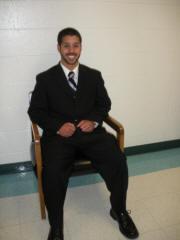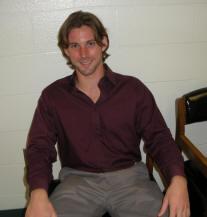Medical School Preparation
www.aamc.org (MD) Allopathic Medicine
www.aacom.org (DO) Osteopathic Medicine
Preparation for medical school requires, first and foremost, that certain pre-requisite courses be completed and that the applicant take the Medical College Admission Test (MCAT).
Students preparing for the MCAT exam should note that a significant portion of the exam is now psychosocial knowledge and that not all of the material will be covered in basic courses such as PSYC 101 and SOCI 101/201. Students should consider additional psychosocial courses and/or study supplemental material for this portion of the new MCAT.
You can choose any undergraduate major, provided that you include the required medical school prerequisite classes in your course of study. You must do very well academically in the area of study that you choose and also in all prerequisite courses.
Minimum Required Courses
- General Chemistry (1 year with Labs)
CHEM 121, 122 - General Physics (1 year with Labs)
PHYS 121,123
- Organic Chemistry (1 year with Lab)
CHEM 221, 222 - General Biology (1 year with Labs)
Course recommendations dependent on major
Strongly Recommended Courses for MCAT Preparation
The minimum courses to do well on the MCAT and the minimum courses for medical school admission are NOT the same thing. Please note that MORE courses are needed for thorough MCAT preparation than are required for admission. The courses below are strongly recommended additions to your program of study to facilitate good MCAT performance.
- Biochemistry (1 semester with Lab)
CHEM 417 - Cell Biology (1 semester with Lab)
BIOL 350 - Introductory Psychology (1 semester)
PSYC 101
- Anatomy and Physiology (1 year with Lab)
BIOL 215, 216 - Genetics (1 semester with Lab)
BIOL 360 or 370 - Introductory Sociology (1 semester)
SOCI 101 or 201
First - what is an MD versus a DO?
An MD is a Medical Doctor whereas a DO is a Doctor of Osteopathic Medicine. In general, these are very similar with similar requirements, with the main difference being that OD’s tend to treat patients with a holistic, whole-person approach.
There’s Osteopathic and Allopathic medicine? What does that mean?
Allopathic medicine tends to use medication, surgery, and other such interventions to treat illness whereas Osteopathic medicine focuses on treating the person as a whole. This is done primarily through education and prevention. A DO will receive additional training in osteopathic manipulative medicine, which is a hands-on method used to diagnose and treat patients.
There are many fields that students with an MD or OD can go into. There are three broad categories:
-
- Primary care physicians, which is the doctor patients tend to visit most frequently. They treat a wide variety of illnesses and often provide preventative care. Examples include pediatricians and primary care physicians.
- Surgeons, who perform operations.
- Specialists, who have expertise related to specific diseases and anatomical organs such as cardiologists and neurologists. Examples of different types of specialties include (but are not limited to):
- Anesthesiologist
- Cardiology
- Endocrinologist
- Family medicine
- General Practitioner
- Internal medicine
- Neurology
- Oncologist
- Pathologist
- Pediatrician
- Psychologist
- Pulmonologist
- Urologist Dermatologist
- See AAMC Careers in Medicine for more details.
Resources and Opportunities
- Explore Health Careers
- Bureau of Labor Statistics
- Understanding the Application Process
- Core Competencies
- Research experience, application process, webinars and more
- American Association of Colleges of Osteopathic Medicine
- Mentoring platform
- Military Medicine
- Sign up for the SU Medical Careers Society by emailing: mcs@gulls.salisbury.edu.
- Join the Medical Careers Society Announcements Telegram group chat
Applying
It is very important for a competitive applicant to have extracurricular activities. There are a wide range of possibilities. It is important that you have some type of clinical experience and most applicants have research experience as well. Medical schools want to be certain that you have knowledge of the field and job of the physician. Research or clinical experiences that you initiate or develop yourself are particularly rewarding and viewed very positively. Community and campus service, participation in organized sports or arts, leadership, and well developed personal interests are all important in the admission process.

Carlos Rivera-Pratts
Exercise Science Major
Chemistry Minor
University of Maryland Medical School

Nick Ross
Biology Major
Chemistry & Psychology Minor
Lake Erie College of Osteopathic
Medicine, Bradenton Campus
Kathy Dunning
Chemistry & Math Majors
Biology Minor
University of Maryland Medical School

